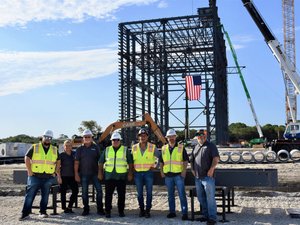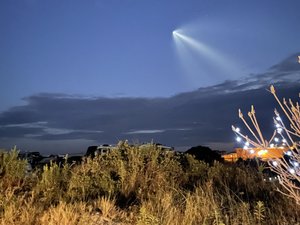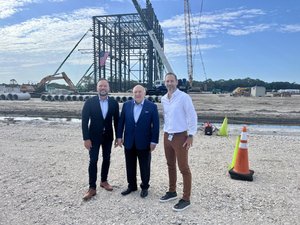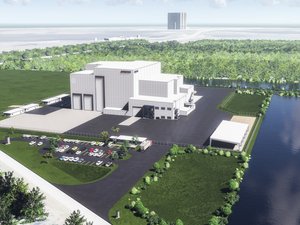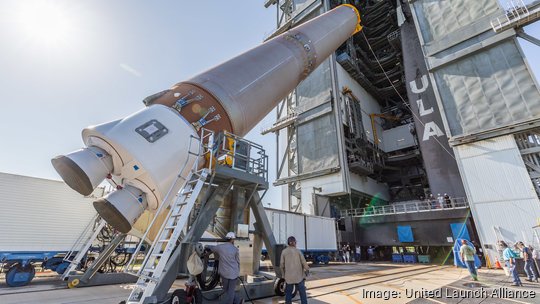
Two prototype satellites for Amazon’s (Nasdaq: AMZN) Project Kuiper telecommunications constellation will be sent to space today, Oct. 6, from Cape Canaveral Space Force Station, according to online publication Space Intel Report.
These two satellites will be carried by an Atlas V 501.
Trending: Amazon's Project Kuiper takes shape [PHOTOS]
The mission originally was set for earlier in 2023, but the launch vehicle — the Centennial, Colorado-based United Launch Alliance (ULA) heavy-lift Vulcan — had problems during testing. A crack in the upper stage tank caused an explosion, so Amazon shifted gears. ULA had signed a deal to take about 1,710 Project Kuiper satellites to space using its Vulcan Centaur launch vehicles, OBJ sister publication Denver Business Journal reported in April.
What Amazon's Project Kuiper means for the region:
The fast-growing lower Earth orbit satellite market means more launches for Brevard County. Launches create jobs and ancillary businesses.
Amazon plans to place 3,236 satellites in lower Earth orbit for its constellation, and Florida's Space Coast is an ideal place to launch from, and that's why the company is building a satellite processing facility in Brevard County, near ULA and Space Coast launch pads, Steve Metayer, vice president of production operations for Project Kuiper, previously told Orlando Inno.
“We wanted to be close to our launch partners. ... We build a stack of satellites, which can be 70-plus feet high. We don’t want to leave the Space Center for that. We want to get to the launch pads on uncongested roads, with no bridges or utilities in the way."
The heavy satellites each weigh about 1,300 to 1,540 pounds, so Amazon is relying on heavy-lift launch vehicles that can carry from 44,000 to 110,000 pounds, allowing bigger batches to be launched at once.
As of Sept. 20, engineers and technicians at Cape Canaveral Space Force Station completed the initial buildup of the Atlas V 501 rocket that will launch prototypes of the Project Kuiper broadband system for Amazon, according to a ULA blog post.
“The satellites will add real-world data from space to results from Amazon's extensive lab testing, fieldwork and simulation. This protoflight mission also helps Amazon finalize design, deployment and operational plans ahead of a full-scale deployment beginning in 2024."
NASA defines a protoflight as a mission that helps verify that a built design has adequate workmanship.
Meanwhile, Hawthorne, California-based SpaceX is further along in building its Starlink satellite constellation. It already has more than 4,600 satellites in space and more batches of satellites are sent up each month. In October, the company will launch yet another batch from Cape Canaveral Space Force Station.
However, astronomers are concerned that growing body of lower Earth orbit — altitudes ranging from 160 to 2,000 kilometers above the Earth's surface — satellites will interfere with their observation of space and collide with spacecraft. When old satellites deorbit and burn up, the Earth’s climate may be unpredictably impacted, Scientific American reported last year.
Several companies with a local presence lead the $3.04 billion lower Earth orbit satellite market based on revenue include SpaceX, Melbourne-based L3Harris Technologies Inc. (NYSE: LHX), Falls Church, Virgina-based Northrop Grumman Corp. (NYSE: NOC) and Bethesda, Maryland-based Lockheed Martin Corp. (NYSE: LMT), according to Emergen Research. The companies place satellites in space for a variety of purposes, ranging from weather forecasting and navigation to telecommunications and Earth observation.
Sign up here for The Beat, Orlando Inno’s free newsletter. And be sure to follow us on LinkedIn, Facebook and Twitter.
